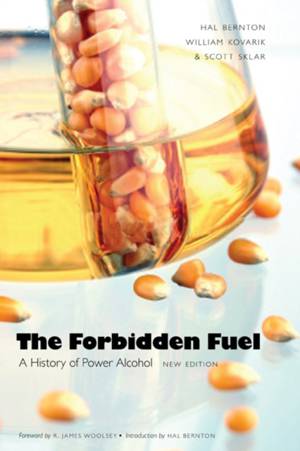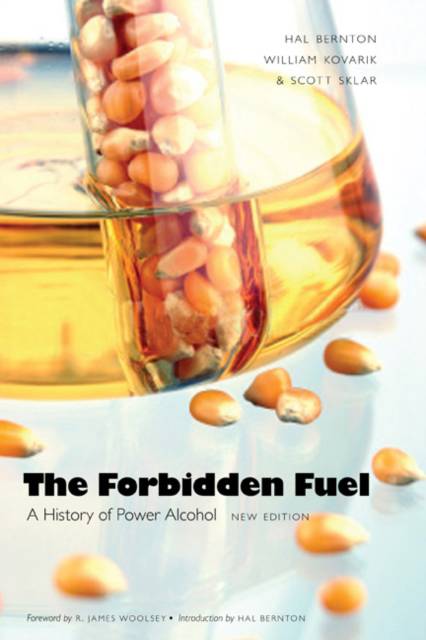
- Retrait gratuit dans votre magasin Club
- 7.000.000 titres dans notre catalogue
- Payer en toute sécurité
- Toujours un magasin près de chez vous
- Retrait gratuit dans votre magasin Club
- 7.000.000 titres dans notre catalogue
- Payer en toute sécurité
- Toujours un magasin près de chez vous
Forbidden Fuel
A History of Power Alcohol
Hal Bernton, William Kovarik, Scott Sklar
Livre broché | Anglais
22,45 €
+ 44 points
Description
The Forbidden Fuel is the definitive history of alcohol fuel, describing in colorful detail the emergence of alcohol fuel in the nineteenth and twentieth centuries and the political and economic forces behind its popularity, opposition, and eventual growth. In 1982, when The Forbidden Fuel was first published, approximately 350 million gallons of ethanol were produced in the United States for transport fuel. In 2008 that number had grown to 9 billion gallons-an approximate average annual growth rate of 98.9 percent. Similar dramatic growth has occurred all over the world, especially in Brazil. This new edition examines the forces behind this explosive growth; it also presents fresh evidence that the controversial issues that were presciently foreseen and described in the 1982 edition-limits of the land, food versus fuel, environmental risks, and global warming-still persist as unabated challenges to industry leaders and policy makers. Hal Bernton is a reporter for the Seattle Times. He worked on a team that earned the Anchorage Daily News the 1989 Pulitzer Prize for Public Service, and his journalism awards include the 2009 James V. Risser Prize for western environmental journalism. William Kovarik teaches journalism at the University of Western Ontario, Radford University, and Virginia Tech, and is the author of Mass Media and Environmental Conflict. Scott Sklar is the author of Consumer Guide to Solar Energy and leads the Stella Group, Ltd., a strategic clean-energy marketing and policy firm in Washington, D.C. R. James Woolsey is the Annenberg Distinguished Visiting Fellow at Stanford University's Hoover Institution and a former director of the Central Intelligence Agency. Boyd Griffin is president of the consulting company Boyd Griffin & Company. Visit the authors' Web site at www.forbiddenfuel.com.
Spécifications
Parties prenantes
- Auteur(s) :
- Editeur:
Contenu
- Nombre de pages :
- 328
- Langue:
- Anglais
Caractéristiques
- EAN:
- 9780803228085
- Date de parution :
- 01-03-10
- Format:
- Livre broché
- Format numérique:
- Trade paperback (VS)
- Dimensions :
- 150 mm x 226 mm
- Poids :
- 385 g







